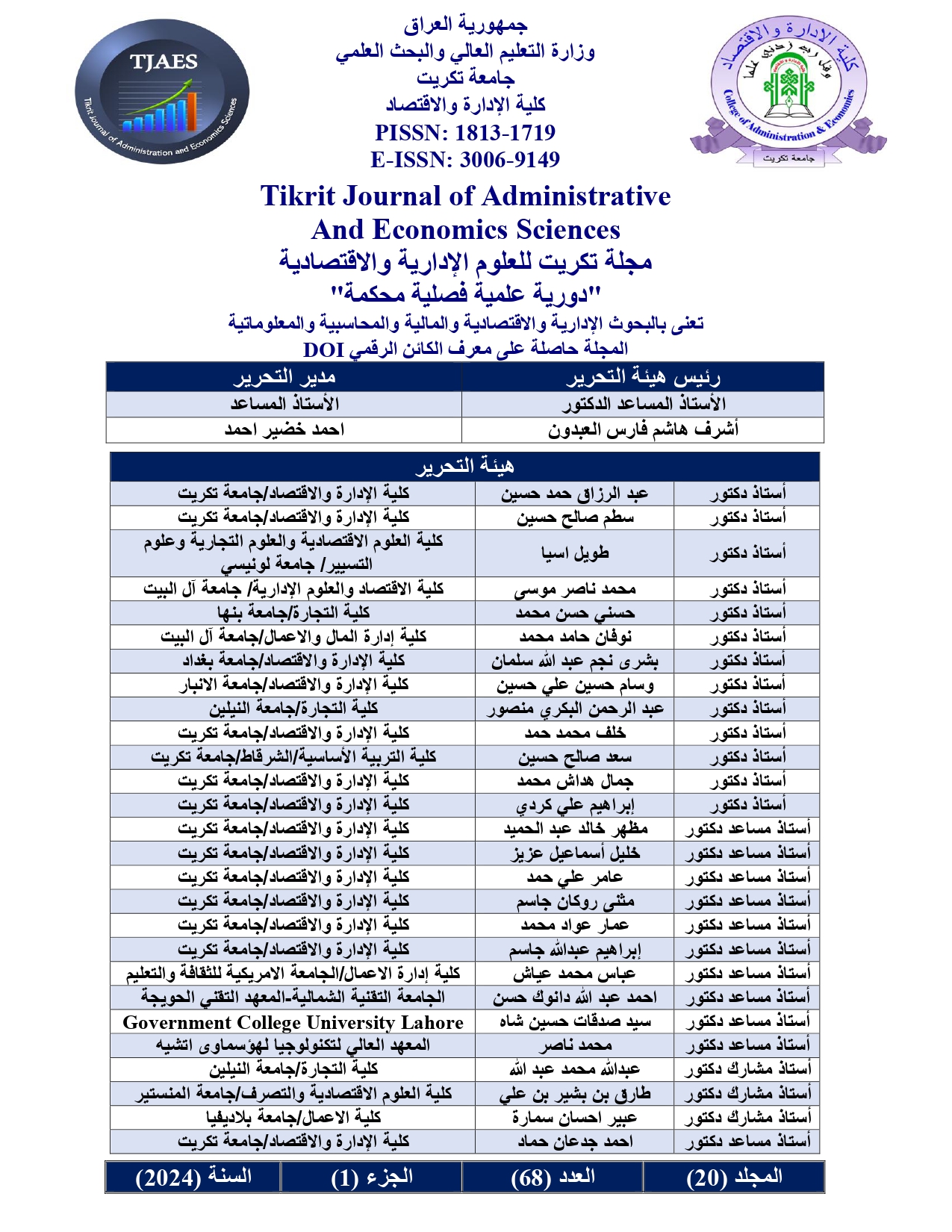Abstract
The research aims to identify the role of conscious leadership in achieving organizational excellence in the College of Science, University of Mosul. The research problem crystallized in light of the successive environmental changes witnessed by the educational sector at the University of Mosul, in addition to the repercussions of the Corona pandemic and the technological developments that accompanied the educational process to confront it and the growing competitive environment of public and private universities throughout the governorate, which necessitated that these organizations possess a conscious leadership style characterized by the ability to achieve self-realization and bear responsibility for confronting environmental changes and a greater understanding of social relations in order to achieve goals and organizational excellence. In an effort to achieve the research objectives, the research also adopted the descriptive approach in presenting and analyzing the data and using a set of statistical methods that were used to analyze the data of the practical aspect, which included an analysis of the opinions of the researched individuals, numbering (191) individuals, who were represented by the instructors in the College of Science. After analyzing the statistical relationships between the research variables, a set of results were reached, the most important of which are: The adoption of the researched college of the conscious leadership style has an impact on achieving organizational excellence.
Keywords
Conscious leadership
Organizational Excellence.
Abstract
يهدف البحث التعرف على الدور الذي توديه القيادة الواعية في تحقيق التفوق التنظيمي في كلية العلوم جامعة الموصل وتبلورت المشكلة البحثية في ظل ما شهده القطاع التعليمي في جامعة الموصل من تغييرات بيئية متلاحقة فضلا عن تداعيات جائحة كورنا والتطورات التكنولوجية التي رافقت العملية التعليمية لمواجهتها وتنامي البيئة التنافسية للجامعات الحكومية والأهلية بعموم المحافظة الأمر الذي استدعى امتلاك تلك المنظمات لنمط قيادي واعٍ يتسم بالقدرة على تحقيق الذات وتحمل مسؤولية مواجهة التغييرات البيئة وفهم اكبر للعلاقات الاجتماعية بغية تحقيق الأهداف والتفوق التنظيمي. وسعيا في تحقيق أهداف البحث، كما اعتمد البحث المنهج الوصفي في عرض البيانات وتحليلها وباستخدام مجموعة من الأساليب الاحصائية التي استخدمت لتحليل بيانات الجانب العملي الذي تضمن تحليل لآراء الأفراد المبحوثين والبالغ عددهم (191) فرد والذين تمثلوا بالتدريسيين في كلية العلوم، وبعد تحليل العلاقات الاحصائية بين متغيرات البحث تم التوصل إلى مجموعة من النتائج أهمها: إن تبني الكلية المبحوثة لنمط القيادة الواعية له أثر في تحقيق التفوق التنظيمي لديها.
Keywords
القيادة الواعية، التفوق التنظيمي.
